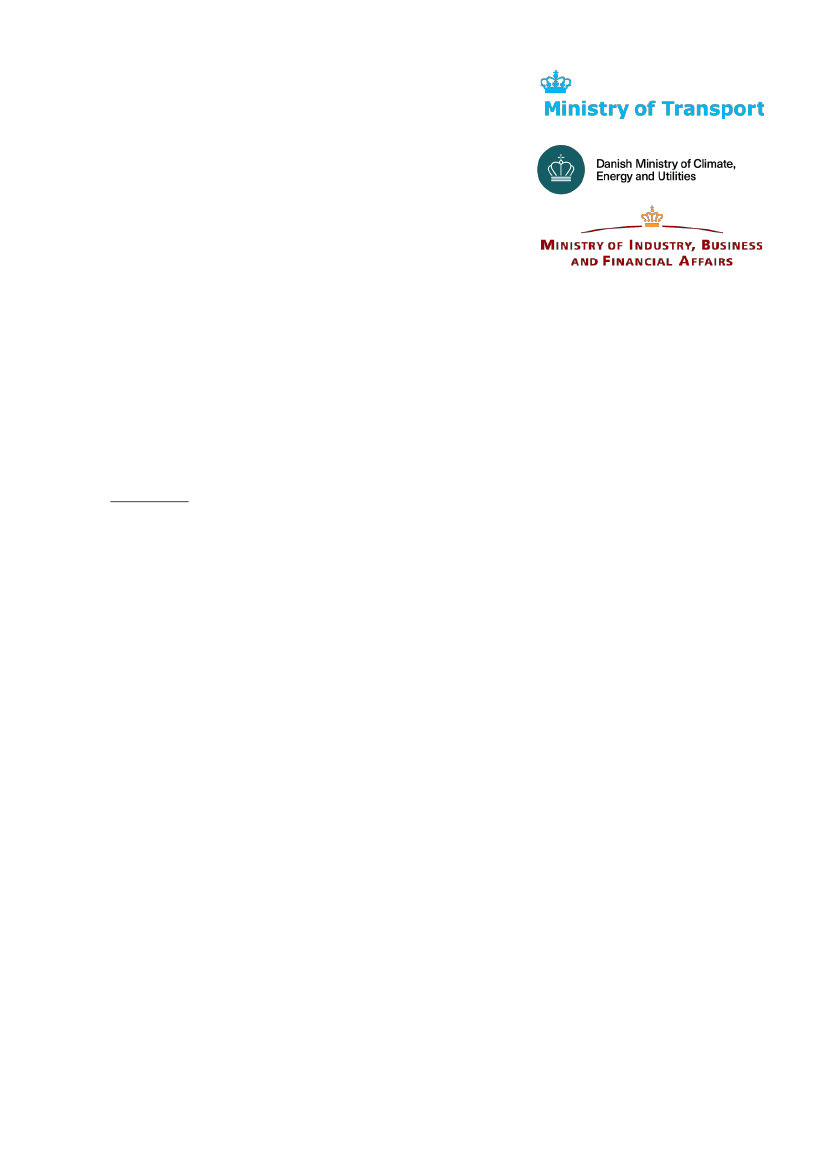
3. September 2025
Response of the Danish Government to the
Commission’s call for evidence
- Sustainable
Transport Investment Plan (STIP)
Introduction
On 7 August 2025, the Commission initiated a call for evidence to
gather input for an upcoming Sustainable Transport Investment
Plan (STIP). The purpose of the plan is to provide a strategic
framework for the green transition of all modes of transport focus-
ing specifically on the aviation and maritime sectors.
For road transport, electrification with battery electric vehicles is
well under way due to technological advancement and supported
especially by the CO
2
-standards for light and heavy-duty vehicles
as well as Member States’
initiatives.
However, especially in avia-
tion and maritime transport, direct electrification with the current
technological readiness level is in many cases unable to meet the
high energy density requirements. Instead, renewable and low car-
bon fuels are needed and it is important that the production and
uptake of these fuels is ramped up quickly, globally and in the EU.
The production and availability of green fuels in the EU is not only
important
to deliver on the EU’s climate ambitions,
it can also help
reduce air pollution if taking into consideration in the development
of the fuels. In addition, production of renewable and low carbon
fuels improves the EU’s
energy security.
The Danish Government agrees with the Commission that a guid-
ing framework on how to support the production of renewable and
low carbon fuels for the aviation and maritime sectors is indeed
necessary and helpful in furthering and accelerating the transition.
Such a framework can address distinct investment barriers associ-
ated with each mode of transport and also increase the competi-